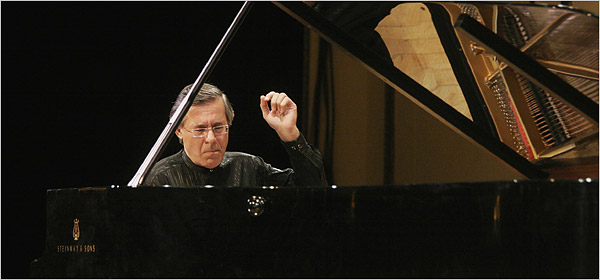Exits Are
So I hesitate to use this space to self-promote, but in this case I will make an exception, for a number of reasons, beginning with the fact that the project is online and free.
Exits Are is a series of collaborative stories that are also games. The games borrow their format and many of their conventions from text adventures (“interactive fiction”). From the about page: “A text adventure is a game that takes place in prose. The computer describes a world to you one room at a time, writing in the second person. ‘You stand in the center of a cool, dark cave,’ says the computer. ‘Exits are north, south, east, and west.’ The computer waits for you to tell it what you want to do. ‘Go east,’ you might say. Or if there is a key, you might say ‘take key.’ The computer parses your commands as best it can and tells you what happens next. . . . love text adventures, but they usually disappoint me. I wanted a way to make them more open-ended, less about puzzle-solving and more about language: its weirdness, its beauty. So I started playing a game with some of the writers I knew. Using gchat, I pretend to be a text adventure. The other writer is the player. We use the form of the text adventure to collaborate on some kind of strange, fun narrative. The only rule is that we take turns typing. We never discuss what we’re going to do in advance, so the results are improvisational and surprising/exciting/stressful/upsetting for both participants. Every time, the player does things I never could have seen coming.” READ MORE >
No One Would Ever Say That
[Much thanks this morning to Elisa Gabbert, who sends thoughts on plainspokenness. – BB]

Over at the new Ploughshares blog (I wrote for it back when it was a humble blogspot), Peter B. Hyland is talking about accessibility and the closely related (in poetry at least) matter of “plainspokenness,” as “plainspoken” poets (such as Billy Collins, he offers) are less intimidating and considered “more convivial.”
It’s a familiar idea that poetry should sound like speech. But Hyland doesn’t claim this; instead, he suggests that “maybe there’s no such thing as plainspoken poetry,” using “The Red Wheelbarrow” as an example of a seemingly plainspoken poem that doesn’t really sound like how people talk.
This reminded me of a post I read years ago (in 2007) on Jonathan Mayhew’s blog:
I learned something quite significant from this. I learned that C Dale Young and I do not speak the same language, poetically speaking. I searched through a recent poetic sequence of mine, The Thelonious Monk Fake Book, to see whether I use words like dark, sadness, chest, hands, water, rain, body, silence. Generally, I don’t use these words very much if at all. Where my vocabulary coincided the most with his was in an Ira Gershwin lyric I happened to be quoting at one point. “Holding hands at midnight , ‘neath the moonlit sky.” I did use “blue” a lot, but that was quoting the titles of Monk tunes, mostly.
It’s no criticism of C Dale’s excellent book of poetry of course to say that I simply couldn’t bring myself use words like that (very much). To me they are *poetry words.* In other words they might correspond to what the average person expects to find in a poem. I don’t like depending on an identifiably poetic tone. On the other hand I’m sure my own *poetry words* would be just as embarrassing, if I knew what they were… If I did know I’m sure I would be obliged to ban them, viewing them as crutches that I was better off without…
Elisa Gabbert begins her blog post, “Publish the Poem, Not the Poet” with the following anecdote-
Going through Absent subs lately, I’ve been reading a lot of poems that feel basically perfunctory. They are perfectly competent poems written by poets who have every indication of being good writers: I recognize their names and the places that they’ve been published; their credentials are impressive; often I’m already pretty familiar with their work. (Everyone submits to and gets published in the same online journals, for the most part.) But the poems are merely competent; they have no [oomph/je ne sais quoi/duende/poetry]. It’s like the poet wrote them just because you gotta write something. These writers are probably capable of turning out a “publishable” poem any day of the week.
The post is worth reading in full. Also interesting is the comments section, where there’s a lively thread going. It seems, for the most part, that people are in agreement with her, some of them quite vocally so. Personally, I felt my own agreement-strings tugged hard at the out-set, but then the upwelling of a consensus so perfectly in line with my own made me distrust my own first instinct. If we’re all in such fine agreement on what the problem is (that is, the problem of “competence,” as outlined above; later EG introduces and “image vs. idea” argument with a highly tentative relationship to the ostensible initial concern of the post) then why has the problem not resolved itself by dint of our own collectively adjusted behaviors? Is there anyone out there who knowingly practices the poetry of mere competence, or sufficiency? Is there a describable (defensible) logic or ethos informing such practice? I would love to hear from that person or those people. Also, does anyone want to make the argument FOR publishing the poet rather than the poem? I actually think there’s a strong, albeit difficult argument to be made for this practice, though not necessarily as it applies to the mid-rangers and “competents” EG is talking about. DISCUSS!
Moves in Contemporary Poetry
 Way back in the comments on Danika Stegeman’s poem “Panacea,” a discussion started about “moves” in contemporary poetry, and I mentioned that I’d seen the poet Elisa Gabbert start pretty awesome discussions about “moves” on her own blog and on the Ploughshares blog. Then she posted the following comment: “Hi Mike, I have definitely talked about moves before, moves I like and moves I don’t like and my own signature moves, but haven’t made a real list, certainly not a comprehensive list, certainly not the DEFINITIVE list. Let me know if you want to collaborate on a list of moves for HTMLGiant.”
Way back in the comments on Danika Stegeman’s poem “Panacea,” a discussion started about “moves” in contemporary poetry, and I mentioned that I’d seen the poet Elisa Gabbert start pretty awesome discussions about “moves” on her own blog and on the Ploughshares blog. Then she posted the following comment: “Hi Mike, I have definitely talked about moves before, moves I like and moves I don’t like and my own signature moves, but haven’t made a real list, certainly not a comprehensive list, certainly not the DEFINITIVE list. Let me know if you want to collaborate on a list of moves for HTMLGiant.”
Well, I thought that sounded like a terrific idea. So here it is, our stab at cataloging 41 popular moves in “contemporary poetry,” an exercise that’s fraught with peril, what with the competing definitions, camps, roles, and processes of “contemporary poetry,” the nebulousness of calling something a “move,” the inevitable non-definitiveness of such a list, and so on, but hey: dancing is fraught with peril too, and no one’s managed to stop me from doing that. So here we go. 41 moves. With mildly related pictures! In no particular order! Please argue and add in the comments. Many thanks to Elisa Gabbert for the bulk of the work on this list.
Diagram 8.5 is live
 from Diagram:
from Diagram:
rises from the giant patch, is out. Consider it an earliness, a bonus, since sometimes we run late too. Perhaps you have noted it and mocked us for it, or raised a glass to our tardiness. Both are fair responses. But this time the new issue is a preemie. So cute! So gross! It’s a live live.
Featuring some SCHEMATICS:
* A Baby’s Face is Small
* An Analysis of the Lever Escapement
* Another Method for Making a Cloud Descend With One or More Persons In It.
* Evidence of Validity of Sensory Evaluation of the Overall Appearance of Pap Smears
* Surgical Procedure: The UnicornSome smokin’ hot REVIEWS of books that are good: [Nicky Beer on Elizabeth Bradfield] [Amanda Maule on Clay Matthews] [Matt Dube on Ben Segal]
And horrifying contributions from:
* Arlene Ang
* Brent Armendinger
* Christopher Cheney
* Joanne Diaz
* Jehanne Dubrow
* Ori Fienberg
* Elisa Gabbert
* Melissa Ginsburg
* Boris Jardine
* M. Kasper
* Marissa Landrigan
* Daniel J. Langton
* Stacie Leatherman
* Margaret MacInnis
* Jack Martin
* Teresa K. Miller
* Trey Moody
* Sierra Nelson
* Kim Parko
* Isaac Pressnell
* Justin Runge
* Margot Schilpp
* Amy Schrader
* Jeffrey Skinner
* Don Thompson
* R. A. VillanuevaHave I mentioned that we are more than willing to wash you in your entirety? I hope so. I had really wanted to mention that. So: check it out at <http://thediagram.com>.
October 27th, 2008 / 12:56 am

